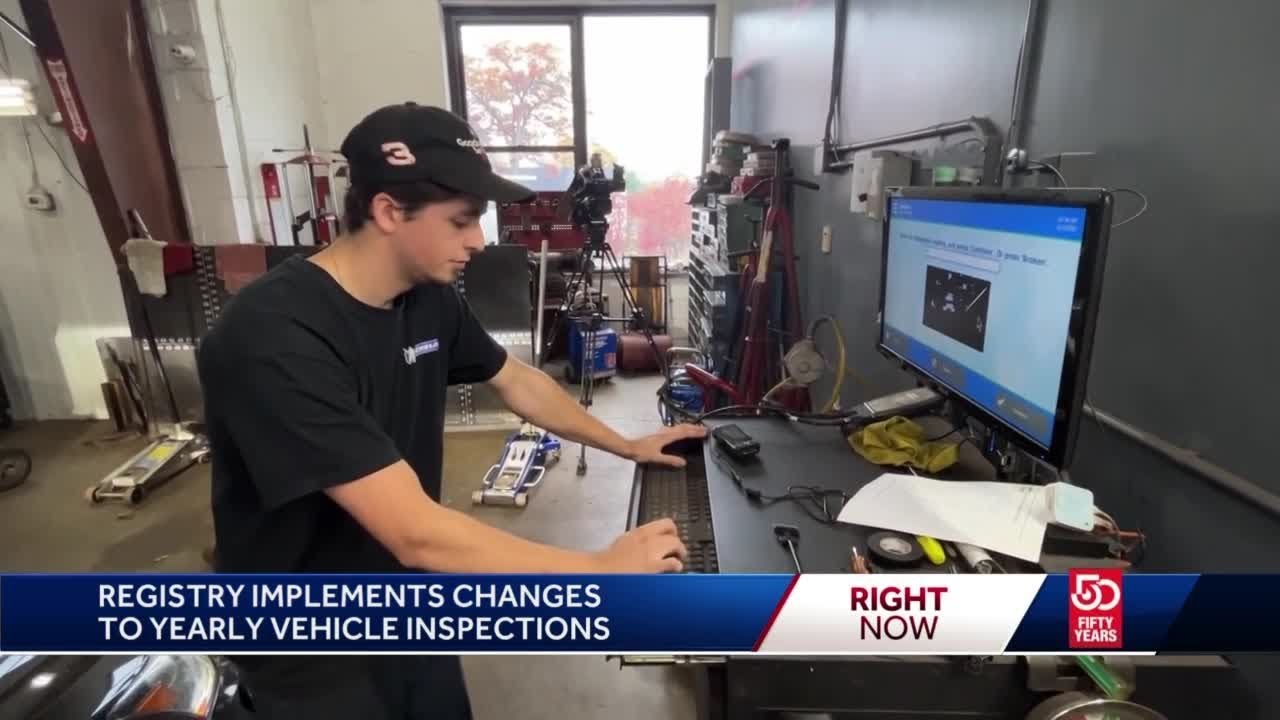Introduction to Rhode Island Inspection Stickers
Rhode Island inspection stickers are an essential component of vehicle safety regulations within the state. These stickers are issued to vehicles that have successfully passed a comprehensive inspection, verifying that they meet the necessary safety and emissions requirements. Displayed on the vehicle’s windshield, these stickers serve as a visible indicator that the vehicle has been approved for roadworthiness.
Purpose and Importance of Rhode Island Inspection Stickers
The primary purpose of Rhode Island inspection stickers is to ensure the safety of vehicles and their passengers. By conducting regular inspections, the state aims to identify and rectify any potential safety hazards or mechanical issues that may compromise the vehicle’s roadworthiness. These inspections play a crucial role in minimizing accidents, reducing environmental pollution, and promoting overall safety on the roads of Rhode Island.
Understanding the State’s Inspection Requirements
Rhode Island’s inspection requirements cover various aspects of vehicle safety, including brakes, tires, lights, exhaust systems, and emissions. These inspections are carried out by certified inspection stations licensed by the state. The inspections are performed annually for passenger vehicles and biennially for commercial vehicles. Additionally, vehicles over five years old are subject to an emissions test to ensure compliance with state standards.
Where to Obtain a Rhode Island Inspection Sticker
Rhode Island inspection stickers can be obtained from licensed inspection stations spread throughout the state. These stations are authorized to conduct inspections and issue stickers upon successful completion. Vehicle owners can find a list of approved inspection stations on the Rhode Island Division of Motor Vehicles website or by contacting the department directly.
Fee Structure for Rhode Island Inspection Stickers
The cost of Rhode Island inspection stickers varies depending on the type of vehicle being inspected. As of 2021, the fee for an inspection sticker for a passenger vehicle is $55. This fee covers both the inspection and the issuance of the sticker. Commercial vehicles have a separate fee structure based on their weight class. It is important to note that these fees are subject to change, so it is advisable to confirm the current rates with the Rhode Island Division of Motor Vehicles.
Factors Influencing the Cost of Inspection Stickers
Several factors can influence the cost of Rhode Island inspection stickers. The type and weight class of the vehicle, as well as any additional inspections required, can impact the overall cost. For instance, if a vehicle fails the initial inspection and requires a retest, an additional fee may be charged. Moreover, if any repairs or adjustments are needed to meet the inspection requirements, the vehicle owner will bear the cost of those repairs.
Additional Costs and Penalties Associated with Inspections
Apart from the initial inspection fee, there may be additional costs and penalties associated with inspections in Rhode Island. If a vehicle fails the inspection, the owner is usually given a specific time frame to rectify the issues and have the vehicle retested. Failure to comply within the specified time period may result in fines or penalties. Additionally, if a vehicle is found to be in violation of safety standards during routine traffic stops, the driver may face fines and penalties as well.
Renewal and Expiration of Rhode Island Inspection Stickers
Rhode Island inspection stickers are valid for one year for passenger vehicles and two years for commercial vehicles. The expiration date for these stickers is conveniently displayed on the sticker itself. Vehicle owners are responsible for renewing their inspection stickers before the expiration date to ensure compliance with state regulations and avoid any penalties. Failure to renew the inspection sticker on time may lead to fines, and the vehicle may be deemed unregistered until the inspection is completed.
Common Issues Identified During Inspections
During Rhode Island inspections, several common issues are often identified. These include faulty brakes, tires with insufficient tread depth, malfunctioning lights, emissions exceeding acceptable levels, and exhaust system leaks. It is essential for vehicle owners to address these issues promptly to pass the inspection successfully. Regular maintenance and timely repairs can help prevent these common issues and ensure a smoother inspection process.
How to Prepare for a Rhode Island Inspection
To prepare for a Rhode Island inspection, vehicle owners should perform routine maintenance checks. This includes checking the functionality of lights, brakes, windshield wipers, and tires. It is also advisable to inspect the exhaust system and ensure that the vehicle’s emissions are within acceptable limits. By addressing these maintenance issues beforehand, vehicle owners can increase the likelihood of passing the inspection without any complications.
Frequently Asked Questions about Inspection Sticker Costs
-
Can I get an inspection sticker without passing the inspection?
No, an inspection sticker is only issued if the vehicle successfully passes the inspection. -
Do I need to bring any documents when going for an inspection?
Yes, vehicle owners need to bring their valid registration and proof of insurance. -
Can I get my vehicle inspected at any licensed inspection station in Rhode Island?
Yes, vehicle owners can choose any licensed inspection station in Rhode Island to have their vehicle inspected. -
Are there any discounts available for inspection sticker fees?
No, currently, there are no discounts available for inspection sticker fees in Rhode Island.
Conclusion: Ensuring Vehicle Safety through Inspections
Rhode Island inspection stickers play a crucial role in ensuring the safety and roadworthiness of vehicles within the state. By adhering to the state’s inspection requirements and obtaining a valid inspection sticker, vehicle owners can contribute to safer roads and a cleaner environment. It is important to understand the cost structure, factors influencing the cost, and additional penalties associated with inspections to ensure compliance with state regulations. Regular maintenance, prompt repairs, and proper preparation for inspections are key to passing them successfully and promoting vehicle safety.





